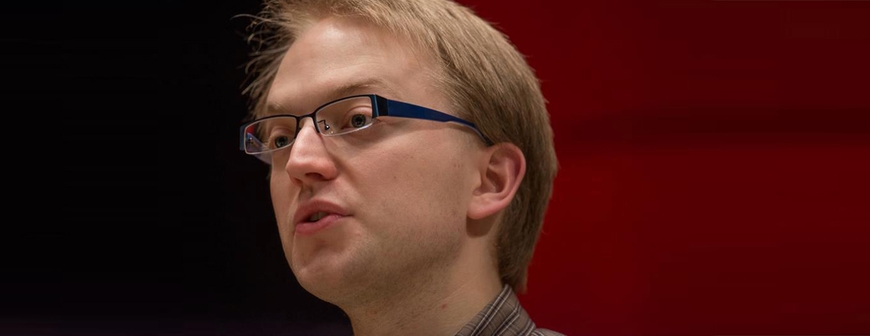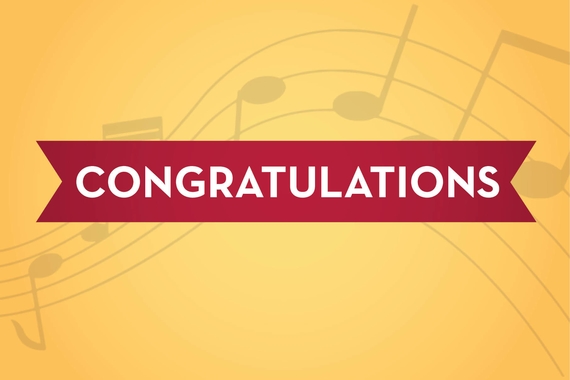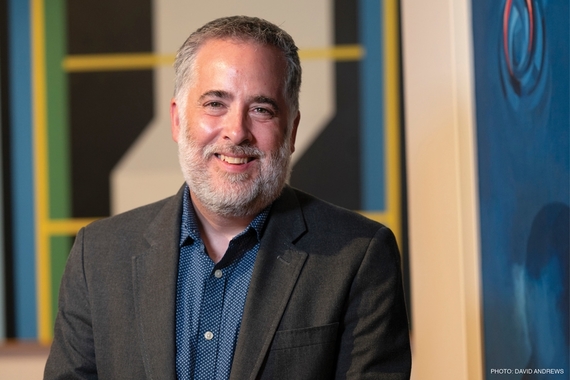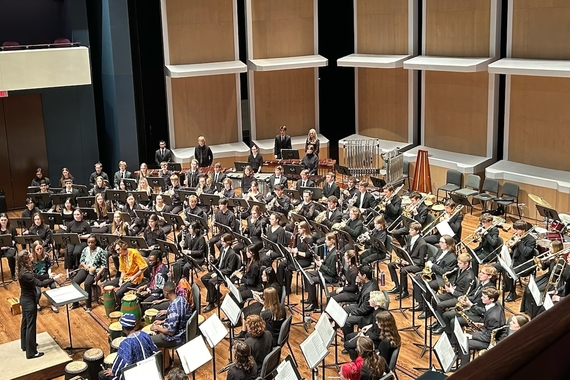Discussing Seventeenth-Century Oratorios and Italian-German Exchange With PhD Candidate Andrew Stoebig, Musicology
The CLA Graduate Student Lighthouse Newsletter recently caught up with PhD candidate Andrew Stoebig, musicology, to learn more about the research that he is doing University of Minnesota School of Music. Read more about his studies below.
What program are you in currently and what is it that you study, in particular?
AS: I’m currently a PhD candidate in musicology at the School of Music. My primary research centers on seventeenth-century oratorio and Italian-German exchange. I’m interested in how the oratorio’s transition from a spiritual practice to a form of entertainment may have left residuals we’re not fully aware of yet. That is, in what ways did the social practices of noble patrons mimic or absorb liturgical or devotional practices into their evening entertainments? A great pivot occurs in 1706-1709 with George Frideric Handel’s Roman visit. From his time there and elsewhere in Italy, he brought both opera and oratorio north to Great Britain, transforming the latter into one of the higher achievements of English choral music. It could well be that this achievement was in effect ritualized into practice in Roman salons a generation or so earlier than Handel’s own visit.
What led you to the PhD in Musicology at the School of Music?
AS: I initially set out from high school intent on becoming a choral conductor. I first completed an MMus in choral conducting at the School of Music. I found the things about music I find the most interesting are less about performance and far more about music’s inner workings. So one thing led to another, and I started working on the degree in musicology.
My secondary research area — which also came about by happenstance — is the music of Mister Rogers’ Neighborhood (MRN). I analyze the program weeks as musical compositions in and of themselves. I’ve watched a great deal of Fred over the past few years—it’s a lot of fun!
While in your program, have you spent time outside of Minnesota and/or the US?
AS: I’ve been privileged to take part in a 2018 archival seminar in Rome through the University of Notre Dame. It was an incredible group of young interdisciplinary scholars working mostly on Roman topics. We had three weeks of introductory tours to archives in the city and the Vatican, as well as time for our own research, which was immensely beneficial to getting my dissertation work off the ground.
I also made a trip to Pennsylvania last summer, where I toured the studio in Pittsburgh where MRN was filmed and spent a few days at the Fred Rogers Center in his hometown of Latrobe. It was a huge thrill to be in the room where such a cherished part of childhood was broadcast to millions of North American children, including me.
What attracted you to the more theoretical and historical approaches to studying music?
AS: I find I’m left unsatisfied when historical music is performed out of context. Beautiful and historical music is now performed in concert settings far removed from the music’s original form and function. Working in musicology enables me to not only understand such music in its historic fullness (that is, juxtaposed to a specific time and place), but also allows my imagination to run wild with how such historic fullness might be brought to bear in our own times and places.
What words of advice would you offer incoming music graduate students?
AS: Don’t be afraid of asking for help, especially from your advisor and colleagues. If you don’t understand a word or concept, you’re probably not the only one in the room. Asking politely for clarity isn’t a sign of weakness, but a sign of scholarly maturity. Knowledge and wisdom come into being through human interaction; at our best, we serve as whetstones, sharpening each other’s minds and ideas for the sake of humanity’s gain. And be kind.
What are your future goals?
AS: This one is wide open for me at the moment. Teaching, writing, and making music with others are my favorite activities, so I plan on doing them for some time to come.
**This CLA Grad Student Spotlight Q&A originally appeared in the February edition of the CLA Graduate Student Lighthouse Newsletter.



